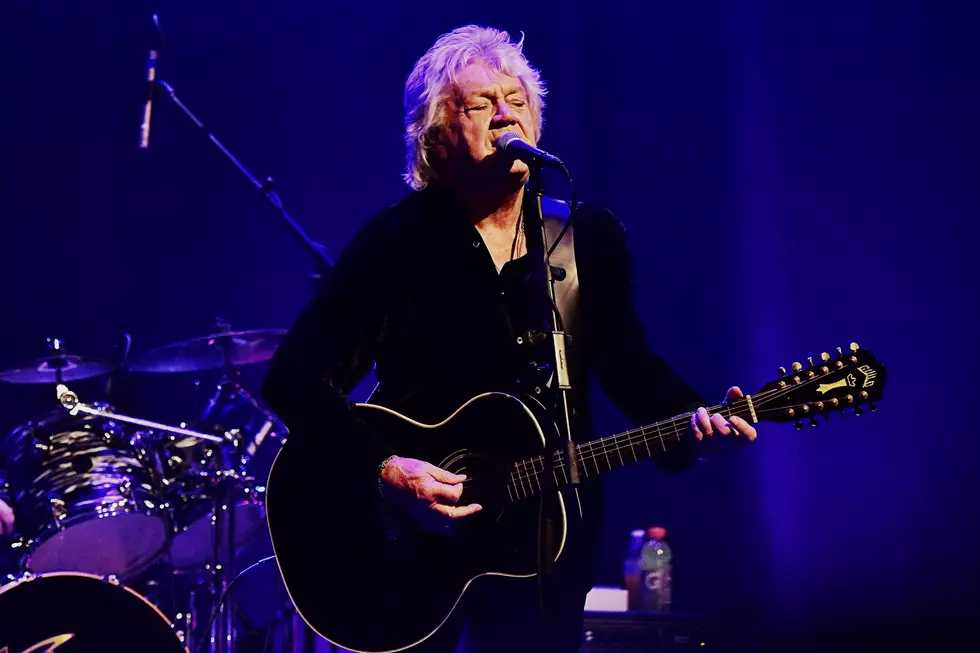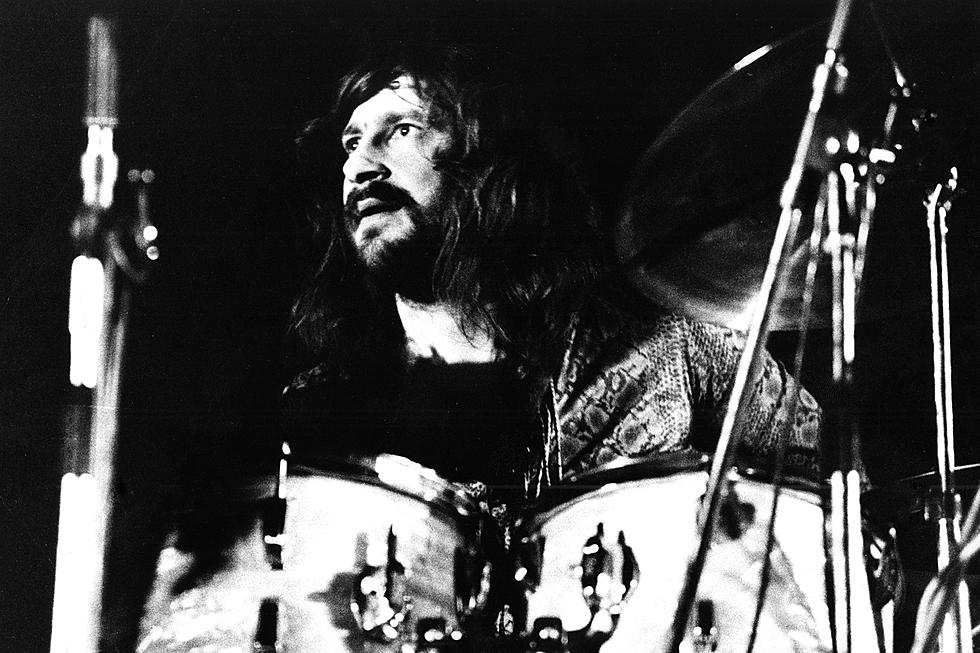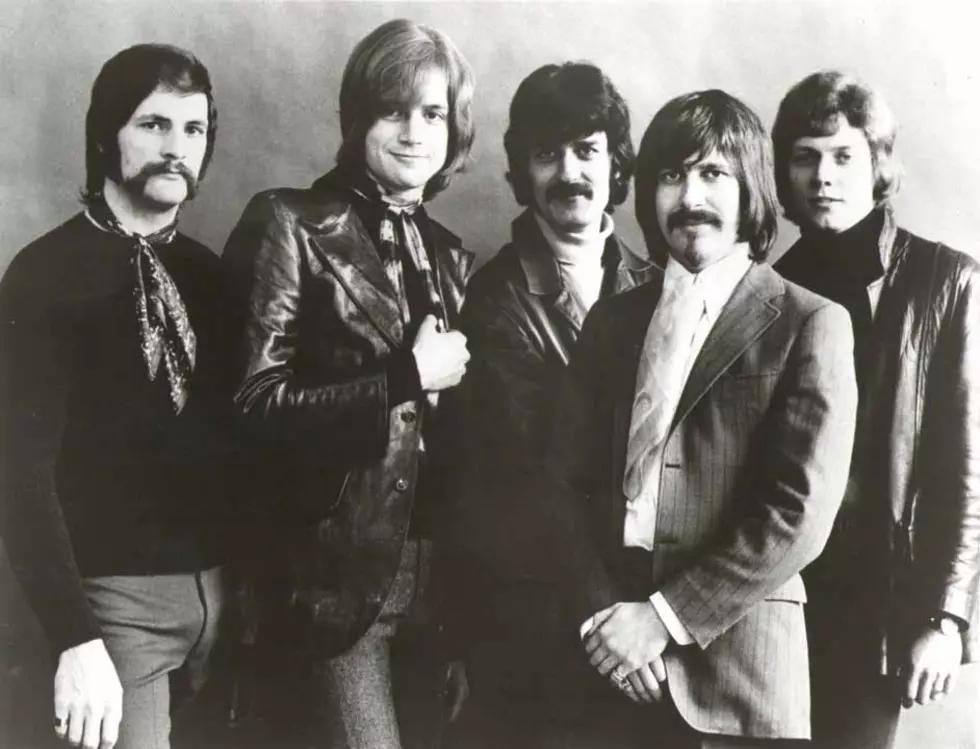
35 Years Ago: Moody Blues Reach a Synth-Pop Dead End on ‘Sur la Mer’
The Moody Blues struck a just-right note of nostalgia as the conclusion of their lengthy experiments in synth-pop drew near. Sur la Mer was, in fact, the end of an era.
The late flutist Ray Thomas' role in the band continued to diminish; he'd barely appeared on 1986's Tony Visconti-produced The Other Side of Life. Visconti apparently chose to leave him out entirely for this follow-up, which arrived on June 6, 1988. Keyboardist Patrick Moraz would be shown the door before long.
Meanwhile, "I Know You're Out There Somewhere" became the Moody Blues' final Top 40 single. A sequel to their 1986 single "Your Wildest Dreams," "I Know You're Out There Somewhere" boasts a theme of long-lost love that perfectly frames this period of change.
By this point, the Moody Blues were well past their early experiments in symphonic rock; instead, they'd remade themselves into pop stars, scoring Top 20 hits with "The Voice" and "Gemini Dream" in 1981 and a Top 10 smash with "Your Wildest Dreams" five years later.
Sur la Mer was the zenith of that sound, or the nadir – depending on which period drew you to the Moody Blues in the first place. They still played extended set pieces like "Nights in White Satin" in concert – it remained, in fact, a showcase for Thomas – but the Moody Blues' newest fans knew them for something a lot sleeker, with synths in place of strings.
Still, you get the sense during a song like "I Know You're Out There Somewhere" that the Moody Blues were growing conflicted by it all. Reminiscing about an old girlfriend, singer Justin Hayward seems to be fully aware of how very different things had become – and also how difficult it would be to ever go back.
"I think it just was one of those things where everyone wants to know what happened to the first person they ever really loved," Hayward told Paul Harris in 1996. "Best not to find out. Best to leave it as a nice memory."
Watch the Moody Blues Perform 'I Know You're Out There Somewhere'
Praise (or again, blame) for their MTV-focused modernization went to Visconti.
The Moody Blues had transformed from a band that took months to record a single song during the sessions for 1983's The Present into one with a much more tightly focused routine that used of-the-moment technology like sequencers. This workman-like, very mechanical approach was reflected in the album, which often had none of the detail of their best-known earlier songs – and it was directly inspired by Visconti.
"He’d start at 11 and finish at 7 – and that was it," Hayward told UCR in 2015. "If you hadn’t done it, he’d say, 'Well, save it until tomorrow.' It was intense, and that’s exactly what we needed."
Graeme Edge, the group's lone remaining founding member, ended up appearing on Sur la Mer as a kind of Robo-drummer. Visconti, Hayward added, "had mastered this little Roland programmer, so we had that and we had a Publison sampler, so we sampled quite a lot of Graeme's drums and were able to use that and not waste too much time over struggling for a drum sound."
This allowed them to build the tracks off early personal takes, rather than working through them as a group. "For the first time, I was able to bring my demos from home, that I’d always done to time code, into the studio," Hayward told UCR, "and they would actually be on the records and then we would make the records – my tracks anyway – around them. It was very nice."
That's how "I Know You're Out There Somewhere" ended up mirroring "Your Wildest Dreams" so closely. "I did the keyboard and the guitar and the LinnDrum for 'Wildest Dreams,' which was finished first," Hayward told Songfacts in 2016, "and for 'I Know You're Out There Somewhere' I decided to use the same keyboard sound and bass sound that I'd got on a Yamaha DX7 and continue that theme. It's the identical tempo and everything."
Things like that certainly saved time, but they also gave Sur la Mer an airless, repetitive quality. Suddenly, the Moody Blues were losing commercial steam. "Your Wildest Dreams" soared to No. 9, while its perhaps too-similar-sounding twin "I Know You're Out There Somewhere" could get no higher than No. 30 in the U.S. "No More Lies," the pillow-soft follow-up single, went Top 20, but only on the adult-contemporary charts.
Listen to the Moody Blues Perform 'No More Lies'
The absence of a distinct stylist like Thomas, to say nothing of long-gone keyboardist Mike Pinder, only compounded the problem. Their oldest fans had to wonder what had become of one of classic rock's most visionary groups. The Moody Blues "pompous days of past," a Sun-Sentinel reviewer sighed in 1988, "now appear to be gone forever."
Turns out, Hayward remembers these times quite differently. He counts "I Know You're Out There Somewhere" as a personal favorite – and the song remained a constant in the Moody Blues' set lists for decades.
"I love performing it. Wherever we go, people like it," Hayward later enthused, well after the song earned him the Ivor Novello Award for composer of the year. "It wasn't a massive hit, but people know it. It wasn't a massive hit because it's about six minutes long, and no one did a successful edit on it. That's probably the one that gives me the most pleasure."
Still, the Moody Blues were never quite the same. Thomas made a brief return for 1991's Keys of the Kingdom, as Visconti's influence began to wane, but Edge performed on only three songs. (The rest of the drum parts were either programmed or handled by a sessions guy.) Thomas was gone one album later.
Meanwhile, the Moody Blues' split with Moraz – which also happened during the sessions for Keys of the Kingdom – turned into an ugly public flap. He sued, and the resulting trial was televised on Court TV.
The Moody Blues, now whittled down to the trio of Hayward, Edge and John Lodge, moved on – but 2003's December remains the only other studio album they've recorded since. As with Hayward's love interest in "I Know You're Out There Somewhere," something fundamental had been lost.
Top 50 Progressive Rock Albums
Remembering Moody Blues Drummer Graeme Edge
More From Ultimate Classic Rock









